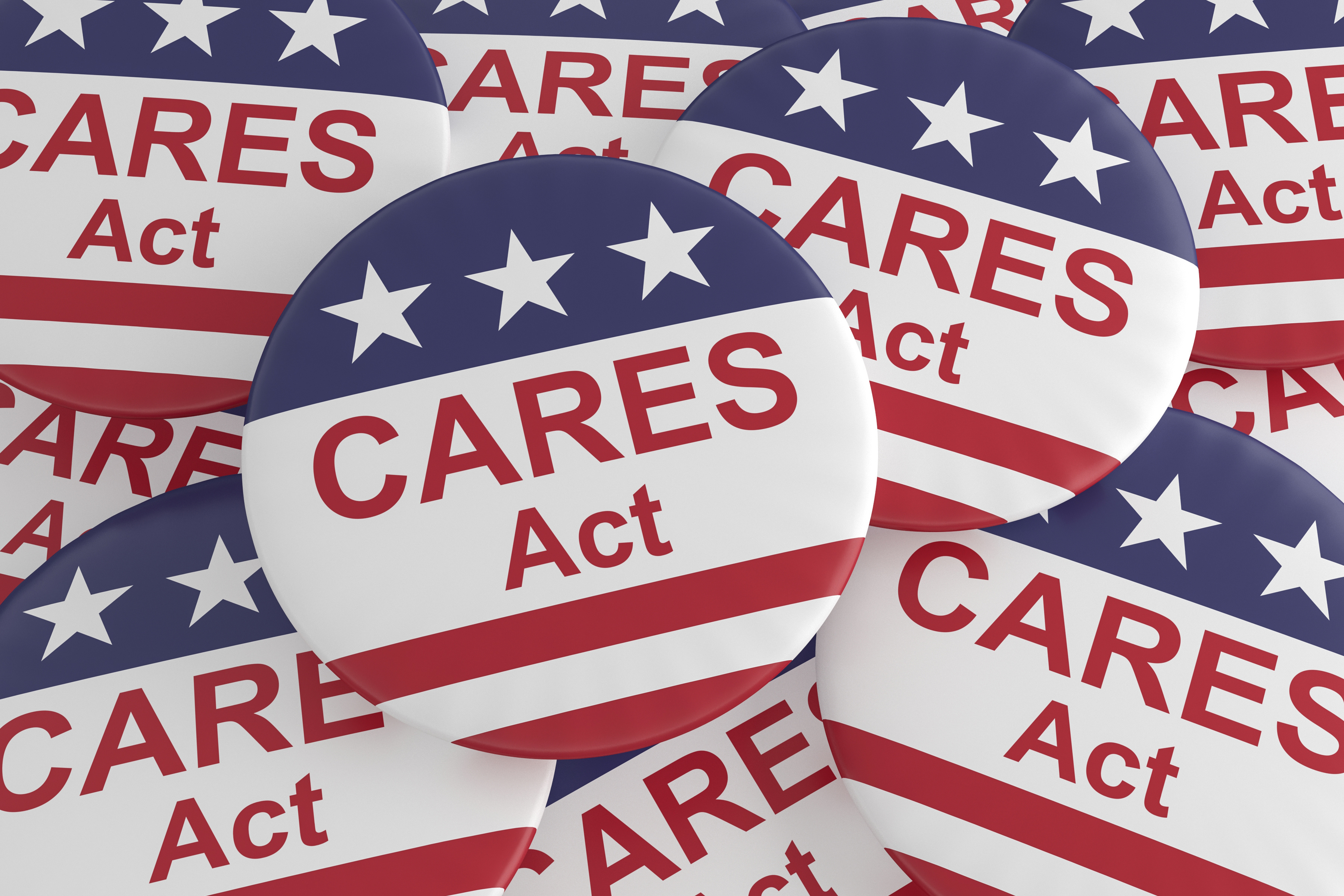The Coronavirus Aid, Relief and Economic Security (CARES) Act was enacted on March, 27th. It is intended to be federal government support in the wake of the coronavirus public health crisis and associated economic fallout. The CARES Act is built on the two former pieces of legislation and is meant to provide more robust support to both individuals and businesses, including changes to tax policy. Here are 8 aspects of this pandemic relief measure that are important to take note of…
- Retirement Plan Changes: This year, individuals under age 59 1/2 will be able to take out IRA or other retirement plan funds without the normal 10% penalty. If an individual takes a “Coronavirus-Related Distribution,” they will have up to three years to repay that distribution back into the retirement account. Otherwise, taxpayers can elect to spread the income from that Coronavirus-Related Distribution over a three-year period, or include it in their 2020 income.
- RMDs Are Suspended: The CARES Act declared a moratorium on taking required minimum distributions from IRAs and other plans, and people who took a distribution this year will be allowed to return the money to their tax-deferred account. However, people who inherited IRAs and already took distributions are not eligible to return the money back into the account.
- Direct Payments Are Coming: Taxpayers will receive a one-time direct deposit of up to $1,200, and married couples will receive $2,400, plus an additional $500 per child. The payments will be available for incomes up to $75,000 for individuals and $150,000 for married couples.
- Student Loan Relief: Individuals who took out Federal student loans will be allowed to suspend payments through September 30th, and no interest will accrue on this debt. Plus, all involuntary debt collections are suspended for the same period, including wage garnishment or the reduction of tax refunds.
- Unemployment Insurance Provisions Update: These provisions now include an additional $600 per week payment to each recipient for up to four months, and extend UI benefits to self-employed workers, independent contractors, and those with limited work history. The federal government will provide temporary full funding of the first week of regular unemployment for states with no waiting period and extend UI benefits for an additional 13 weeks through December 31st after state UI benefits end.
- Small Business Relief: $350 billion is being dedicated to preventing layoffs and business closures while workers have to stay home during the outbreak. Companies with 500 employees or fewer that maintain their payroll during coronavirus can receive up to 8 weeks of cash-flow assistance. If employers maintain payroll, the portion of the loans used for covered payroll costs, interest on mortgage obligations, rent, and utilities would be forgiven.
- Health-Related Account Changes: Participants in Health Savings Accounts, Archer Medical Savings Accounts, and Healthcare Flexible Spending Accounts will be allowed to use these assets to buy over-the-counter medications—something that was not permitted before.
- Hospitals & Other Healthcare Organizations to Receive Help: $140 billion in appropriations will go to the U.S. health system, $100 billion of which will be injected directly into hospitals. The rest will be dedicated to providing personal and protective equipment for health care workers, testing supplies, increased workforce and training, accelerated Medicare payments, and supporting the CDC, among other health investments. Plus, it’s official, all testing and potential vaccines for COVID-19 will be covered at no cost to patients.
This is a lengthy piece of legislation, but this article gives a brief overview of the ways it’s most likely to affect an individual’s life. For more information, please read the sources that we pulled this information from (listed below) and/or call your financial advisor. Professional advisors will be able to explain exactly how all the financial changes brought on by COVID-19 will affect you specifically.
Sources:
https://www.forbes.com/sites/leonlabrecque/2020/03/29/the-cares-act-has-passed-here-are-the-highlights/#b46183a68cd2
https://taxfoundation.org/cares-act-senate-coronavirus-bill-economic-relief-plan/
https://www.brookings.edu/blog/up-front/2020/03/27/careful-or-careless-perspectives-on-the-cares-act/ https://www.forbes.com/sites/anthonynitti/2020/03/25/congress-reaches-agreement-on-a-coronavirus-relief-package-tax-aspects-of-the-cares-act/#15a39ed95f99
https://www.kitces.com/blog/analyzing-the-cares-act-from-rebate-checks-to-small-business-relief-for-the-coronavirus-pandemic/
.png)
.png?width=440&height=102&name=Wealth%20Conservatory%20Logo%20(1).png)


